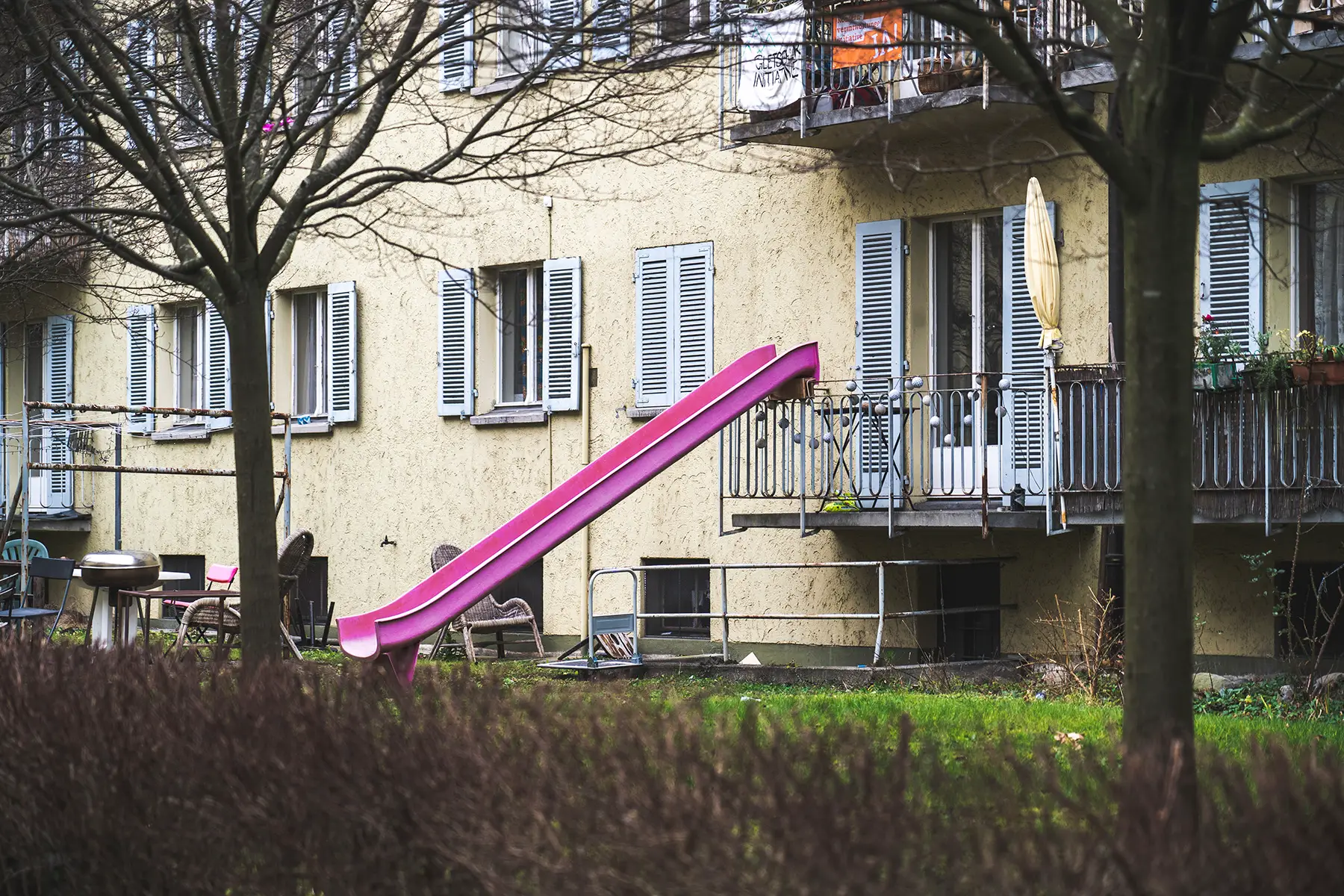In Switzerland, people will expect you to be on time to all meetings because that cliché about punctuality is true. That said, you also won’t leave for your lunch break a second past noon. The country boasts a business culture of flexible work that makes work-life balance easy to achieve. Switzerland also has a robust social security system covering parental leave, health benefits, efficient services, and great infrastructure. This, combined with generous paid vacation policies, guarantees a high quality of life for almost any expat.
Ensure that you too will strike the perfect work-life balance in Switzerland by reading the following sections:
- Work-life balance in Switzerland
- Work culture in Switzerland
- Working hours in Switzerland
- Parental leave in Switzerland
- Resources for maintaining a work-life balance in Switzerland
- Support services for work-life balance in Switzerland
- Work-life balance for the self-employed in Switzerland
- Tips for achieving a good work-life balance in Switzerland
- Useful resources
Coursera
Boost your career with Coursera. This online learning platform lets individuals and organizations learn new job-relevant skills. They partner with over 275 leading universities and companies to offer flexible, affordable courses. From hands-on projects to certificates and degree programs, start your learning journey today with Coursera.
Work-life balance in Switzerland
The Swiss don’t compromise on their work, but they also deeply value their time off, starting with lunchtime. During the weekdays, many families reunite during the lunch hour, and eating at one’s desk is almost frowned upon. Punctuality is a must both in and out of the office. However, most people dedicate weekends and evenings to hobbies and family. Not to mention enjoying all the beautiful natural scenery the country has to offer. Going on family walks or hiking in the Alps is basically a given!

Generally speaking, the Swiss are highly quality conscious, and many are sticklers for planning both their professional and personal lives so as to ensure they maintain the right work-life balance. They are quite successful at it too. According to data from the Organisation for Economic Co-operation and Development (OECD), the average Swiss employee works 1,557 hours per year; a whopping 222 fewer hours than American workers, for an average salary of US$88,792 versus US$65,836. Overall, the share of employees working very long hours is 0.4%; this is much lower than the OECD average of 11% and one of the lowest rates in the OECD.
There are several factors that contribute towards a positive work-life balance in Switzerland. These include a strong and efficient labor system, which ensures a legal minimum of four weeks of paid holiday (plus individual holidays), a wide range of childcare services, and flexibility in the workplace. With all of these benefits on offer, it’s no wonder that the country recently landed in third place in the annual World Happiness Report 2021; published by the UN’s Sustainable Development Solutions Network.
Work culture in Switzerland
With four official languages (German, French, Italian, and Romansh) and work attitudes varying from canton to canton, it can be difficult to navigate Switzerland’s business culture at first. However, a few traits recur across the country; namely directness, politeness, and a certain formality that leans towards the conservative. Once you grasp and understand the cultural values and social etiquette behind this working ethos, however, life in the workplace shouldn’t pose many problems.
The Swiss are generally known to be friendly but rather reserved and official in their business dealings. Therefore, things like addressing people by their surnames and titles and avoiding jokes or sarcasm during a meeting, are important. They also tend to follow a highly hierarchical, rigidly top-down structure at work. Respect is given according to rank, education, and achievements. And while women have equal rights in the workplace, the country remains quite traditional in its viewing of gender roles. Splitting a dinner bill, for instance, might offend your male colleagues. And you still won’t find many women in top management positions.

Despite putting professionalism above all else, Switzerland’s work culture is also built around its family-centric society. This means that as long as you work hard, with precision, and in a punctual manner, employers tend to be quite accommodating when it comes to asking for sick leave or time off for personal reasons. Indeed, full-time workers devote more of their day on average to personal care and leisure than the OECD average of 15 hours. Just remember: don’t ever be late!
Working hours in Switzerland
Legally, the maximum number of working hours per week in Switzerland is 45 for “industry, office staff, technical and other employees, and sales personnel in large retailing firms” and 50 hours for everyone else. Fortunately, almost all companies respect these limits, averaging at around 41 hours per week. That said, some sectors might work a little longer.
Often, companies advertise jobs in Switzerland with the percentage of work that they expect. Some might offer jobs at 90%, for example, meaning two days off a month; while a 50% position implies two days of work one week, followed by three the next. In some cases, employees can negotiate what percentage they would like to work or request to go from working five days a week to four days a week, for example. Such flexibility allows professionals with young children to spend more time at home; thus limiting daycare to only the days when they work full-time.
Flexible work time
Flexible work time is generally common both in industrial and commercial sectors, as are arrival and departure times from the office. That said, most people begin their working day early, around 08:00. Compassionate leave is part of most companies’ policy and employees can use this for their wedding day, the birth of a child, the death of a relative, and in case of a house move.
Annual leave
However, it is annual leave that makes working in Switzerland attractive to expats. Most Swiss companies provide a legal minimum of four weeks of paid vacation, to which employees can add public holidays which average nine days; but depend on the canton. Moreover, most businesses close between Christmas and New Year’s, essentially giving you an extra week off work.

Contracts – both individual and collective – can, and often do, provide for a higher number of annual days. Furthermore, companies often grant employees over 50 years of age more paid leave. On average, teachers enjoy the most time off, with almost 6.3 weeks per year. Transport, finance, public administration, health, and social services employees follow this.
While other European nations have higher statutory figures than Switzerland when it comes to vacation time, such as the UK with 28 days and France with 25, the country is somewhere around the average for Europe. It is also much higher than the US, which has no legal minimum annual leave.
Parental leave in Switzerland
Swiss law mandates a 14-week maternity leave at a minimum of 80% pay. However, some companies might even grant new moms 100% pay. That said, the policy is not especially generous. In comparison, for instance, Estonia offers more than a year and a half of paid leave to new parents. Meanwhile, other countries like Bulgaria, Hungary, Japan, Lithuania, Austria, Slovakia, Latvia, Norway, and Slovenia offer over a year’s worth of paid leave. Still, it fares better than the United States, where there is no guaranteed paid time off for mothers after giving birth.

Once you are ready to get back to work, it is quite common to choose how many hours you want to put in. This means that you could come back at 50, 60 or 100%, depending on your needs.
Fathers are granted paternity leave, too, although only as of September 2020. On 27 September 2020, in fact, the Swiss electorate voted in favor of a two-week paternity leave period. The referendum was a less ambitious version of the initial proposal and the result of three years of political negotiation. However, it still shows that important progress is being made towards equal childcare in the country.
Resources for maintaining a work-life balance in Switzerland
With a taxation method that taxes dividends at a maximum of 35% and a wealth of child benefits and resources, Switzerland makes achieving a good work-life balance fairly easy. Furthermore, there are several resources available that help employees to do this.
Financial resources for work-life balance in Switzerland
Parents are entitled to receive child allowance across the 26 cantons in Switzerland. Even if they aren’t currently working, they can still receive these allowances provided that each parent’s annual taxable income does not exceed CHF 42,300. However, it is the canton you work in that ultimately decides who is eligible and what they will be granted; as well as whether the given amount might eventually change. If the parent is employed, then the benefits are paid by the employer. If the parent is on unemployment benefits, however, then the allowance is paid by the government’s ALV fund.
Part-time and self-employed workers
Parents who work part-time are likely to only receive a partial amount of these benefits unless they earn over CHF 587 a month; in which case they receive the full sum. Since 2013, it is also compulsory for all self-employed residents to pay contributions towards the family allowance fund; this, in turn, entitles them to receive a child allowance.

Each allowance works out to be about CHF 200 per month per child and is further broken down into three specific types of allowances: a birth and/or adoption allowance, an education allowance, and a general child allowance. The idea behind it is to ensure that parents have the necessary funds they need to assist in raising and caring for their children to the best of their ability. It also enables them to maintain a good work-life balance in doing so.
To that end, parents receive the education allowance until their child completes their education or turns 25; whichever comes first (as long as they aren’t working while attending school). Moreover, instead of taxing salaries at high percentages, Switzerland taxes dividends at a maximum of 35% and also has a wealth-based tax. This allows the average worker to have a good disposable income to rely on, and save accordingly. According to a 2020 Credit Suisse Global Wealth Report, the average adult in Switzerland has a net worth of CHF 555,000.
Reduced working hours options in Switzerland
As mentioned, Swiss companies often advertise jobs with the percentage of work that is expected. This means that employees can benefit from flexible work time across most sectors, and choose to work from two to five days a week, depending on their circumstances.
There is no statutory right in Switzerland to flexible or reduced working hours for employees with children. That said, some collective labor agreements do include the right to reduced hours. Some companies also allow parents to have flexible working hours.

Similarly, if a business temporarily has too little or no work, then it can ask employees to reduce their working hours, receiving 80% of their lost earnings. Before introducing reduced working schedules, however, companies must notify the canton in writing of their intention. They must also obtain written consent that employees agree to the adjustment. Employees have the right to refuse to do so, in which case the employer must continue to pay full wages, as specified in the employment contract.
Support services for work-life balance in Switzerland
Although childcare benefits, lower taxes, and other rebates reduce the actual amount paid, parents in Switzerland spend more on childcare than parents in all other OECD member countries.
There are, however, initiatives that aim to reduce Swiss childcare costs. In 2017, for instance, the government approved plans to set aside an additional CHF 96.8 million over the next five years to go towards subsidies for nurseries and other extra childcare services. Similarly, the country created a total of 43,000 new childcare places between 2003 and 2015.

Different cantons have also been experimenting with a system of vouchers for childcare services. This means that instead of subsidies paid to childcare institutions, families receive vouchers that they can spend on a greater range of childcare services in their area.
Workers in Switzerland are also entitled to compassionate and sick leave. Work hours are also restricted to nine hours a day for pregnant women and there is a ban on work at night for at least eight weeks leading up to the birth. In addition, a growing number of companies have started offering services such as occupational therapy, counseling, and wellness programs to employees.
Work-life balance for the self-employed in Switzerland
Switzerland regulates the number of foreign workers coming to set up their own businesses in the country. However, those who make it their base won’t be disappointed. After all, the self-employed can have access to the same childcare benefits as employed workers, enjoy more time off (1.5 additional days of holiday per year), and work from home more regularly than those in office jobs. This all helps ensure a good work-life balance.
However, freelancers are generally not insured against unemployment and are therefore at risk of being cut out of Switzerland’s social security system. With this in mind, both self-employed individuals and freelancers should make sure to take out their own social insurance. They should also remember that, generally, they are also subject to the social security system of their country of residence.
Tips for achieving a good work-life balance in Switzerland
- Make sure to break for lunch – it is not only advised but also expected
- Use up all your annual leave
- Be punctual in all aspects of your life, from when you get to work to your weekend commitments
- Plan ahead of time
- Use your free time to explore all the natural wonders Switzerland has to offer
- Take advantage of the country’s flexible work time culture when setting up your work schedule
Useful resources
- Swiss Info – a portal on Swiss news, society, and culture
- Swiss Federal Government – the Site of the Federal Authorities of the Swiss Confederation which provides information about the Swiss government, the Federal Council, and how they work
- ch.ch – the Swiss authorities’ online platform which provides information on working in Switzerland as a foreigner








